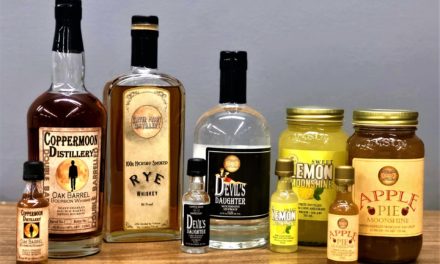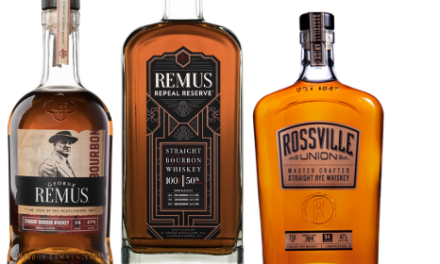It’s hard to overstate the importance of 2005’s Granholm v. Heald decision when explaining today’s thriving direct-to-consumer (DtC) wine shipping market. Granholm changed the wine industry forever by establishing the principle that when a state grants wine producers access to direct sales to consumers, and bypasses conventional three-tier distribution, they must grant that right equally to all wineries regardless of where they are located.
In the 15 years since, DtC shipping has evolved from a niche slice of the pie into the fastest-growing segment of the wine industry. Last year, it topped $3.2 billion in value, according to the Direct-to-Consumer Wine Shipping Report, making up about 10.8 percent of all off-premises wine sales.
That was prior to the pandemic. Now, with tasting rooms closed and consumers locked down for much of the first half of this year, the recent boom in online wine sales wouldn’t be possible without Granholm and the work done by industry and grassroots groups to enable online wine markets.

“There are many reasons to believe that DtC shipping of all alcoholic products by more industry members will continue to expand.” —Alex Koral, SOVOS ShipCompliant
The case challenged state laws that permitted local wineries to make DtC sales but not out-of-state producers, pitting the 21st Amendment against other constitutional provisions. By a slim 5-to-4 majority, the Supreme Court determined that a state’s power under the 21st Amendment to set up its internal alcohol market was not a carte blanche right to trample over other constitutional provisions, opening the door for the modern DtC market.
Granholm may have recently turned 15, but there’s another recent SCOTUS anniversary that we need to unpack if we are to understand current policy discussions, regulatory implications, and the future of the beverage alcohol industry. One year ago, the Court opened the door in Tennessee Wine and Spirits v. Thomas for further DtC permissions to more members of the beverage alcohol industry by extending the Granholm principles of non-discrimination against out of state interests beyond the supplier tier.
Forty-six states allow direct shipments from wine producers, but far fewer states allow DtC shipping for retailers, brewers, distillers, or importers. So far, legal efforts to change that reality have largely hit a wall. The lesson? As with Granholm, these groups are going to have to work hard—and work together—if they are to overcome various state-level obstacles preventing expansion.
The state of shipping alcohol DtC
Currently, beer producers cannot ship directly to consumers in 80 percent of the country, geographically. Only consumers in the District of Columbia and nine states have the right to buy their beer directly from the producers and have it shipped to them, including Alaska, Nebraska, Nevada, New Hampshire, North Dakota, Ohio, Vermont, and Virginia (Oregon as well, but only from states that permit DtC shipping of beer). Kentucky will join this list later this summer.
Spirits producers face an even more truncated map. Only Nebraska, Nevada, New Hampshire, North Dakota, the District of Columbia and, again effective later this summer, Kentucky, permit distillers to ship directly to consumers. Arizona does permit licensed microdistillers to make DtC shipments. However, it caps the annual production size of such distilleries at 1,189 gallons.
A few states seem to allow in-state producers to make DtC shipments of both beer and spirits as an extension of those businesses’ tasting room sales. However, these permissions are not widely advertised—likely because they would be readily subject to a Granholm challenge.
Cider is interesting because it straddles the boundaries of wine and beer. As an agricultural product (i.e., when the cider is actually produced from apples, and isn’t merely apple-flavored), cider is generally regulated as a wine. However, many agencies see cider, with its lower ABV and beer-like packaging, as more resembling a beer. This adds a lot of confusion to when and where cider may be shipped DtC.
On the retail side, 15 states plus the District of Columbia let retailers ship products directly to consumers (with some quirks, and as long as retailers maintain the same product limitations as producers). These states include Alaska, Oregon, Connecticut, Florida, Louisiana, Nebraska, Nevada, New Hampshire, North Dakota, Virginia, West Virginia. and Wyoming. Meanwhile, California, New Mexico, and Idaho operate on a reciprocity basis, permitting each other’s retailers to ship to their residents.
There’s no reason non-winery members of the alcohol industry could not enjoy the same DtC shipping privileges as wineries. Indeed, the success of DtC wine shipping, which is by and large compliant with state regulations and remits millions of dollars in tax revenue annually to the states, signals that, if made available, these other industry members could also create effective and compliant DtC shipping programs.
However, to reach the level of availability that wine producers have, these other industry members will need to engage in widespread efforts—including gathering grassroots lobbying support—to challenge and change laws across the nation.
A year later: Tennessee Wine and Spirits v. Thomas and what comes next
Despite a ruling that seemed initially favorable to retailers and other groups seeking to expand their DtC capabilities, not much has changed legally in the year since Tennessee Wine and Spirits v. Thomas. While discriminatory laws preventing some forms of DtC shipping have been challenged, these cases take time to wind their way through the courts, and there’s no guarantee federal courts will rule for the plaintiffs.
For example, just a few weeks ago, the 6th Circuit Court of Appeals ruled in Lebamoff v. Snyder that a Michigan law permitting in-state retailers—but not out-of-state retailers—to ship wine DtC to its residents was valid. The appellate ruling largely overlooked the anti-discriminatory provision that the Supreme Court set down in Tennessee Wine and Spirits and Granholm, instead focusing on the potentially harmful impact that interstate shipping could bring to the state’s three-tier system. What this decision means for court cases in other states remains to be seen. But it does severely diminish hopes that retailers could find immediate regulatory relief in the courts.
Instead, retailers and industry groups are going to have to take their destiny into their own hands—likely through state-by-state grassroots efforts, following the model of Granholm—if they want to enjoy the same permissions that wineries have largely nationwide.
Over the last 15 years, the wine industry has built out a market and infrastructure capable of handling $3.2 billion worth of sales that meets the various and particular compliance requirements imposed by individual states. What the next 15 years will bring remains to be seen, but there are many reasons to believe that DtC shipping of all alcoholic products by more industry members will continue to expand. The desire among consumers is there, as is the interest and ability to comply with laws among sellers. All we need is to build on our past success.
Alex Koral is senior regulatory counsel for Sovos ShipCompliant. He actively researches beverage alcohol regulations and market developments to inform development of Sovos’ ShipCompliant product and help educate the industry on compliance issues. Koral has worked with the company since 2015, after receiving his J.D. from the University of Colorado Law School.











